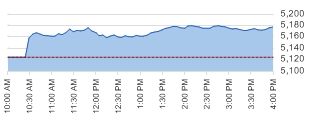
Melbourne mum Rowena Vitarelli shops for home brand staples.
ARE you sick of seeing your favourite brands disappear from supermarket shelves, only to be replaced with private label products? Get used to it.
That’s the advice from one of Australia’s leading retailers, electronics disrupter Ruslan Kogan.
As the founder of online retailer Kogan.com, which built its success on its range of dirt cheap home brand electronics, he knows only too well that there are very few categories where brands actually matter to consumers. And the supermarkets have cottoned on.
Kogan, who describes his company as a “statistics business masquerading as a retailer”, said supermarkets had ruthlessly used the same A/B testing techniques employed by online retailers such as Amazon.com for years, to effectively shelf-test third-party products out of existence.
The simple truth, he argued, was that customers claimed to care about their favourite brands, but their behaviour said otherwise.
And from a retailer’s perspective, vastly higher margins and greater control of supplier relationships were a small price to pay for some short-lived grumbling from customers.
“I think in general brands cause people to make emotional purchases, however in the long run people are rational,” he said.
“A brand used to matter a lot more than it does today, and the reason for that is we have huge amounts of information at our fingertips. Twenty years ago I would’ve bought a Grundig or a Sony TV because I didn’t know much about TVs, but the brand meant quality product.
“These days you buy a TV, you know the specs of it. I bought a 42-inch, Smart LED TV. You probably even know the hertz. You could read a review of a brand you’ve never heard of from a tech expert and you’d be happy to buy that product.”

Ruslan Kogan says we’d better get used to private label.Source:News Corp Australia
Kogan learnt the game from the opposite direction, starting with private label electronics before venturing into third-party brands such as Apple and Samsung, but managed to keep a lid on prices through the company’s Allocate system, which forced suppliers to bid against each other to fill orders.
He had high praise for German discount supermarket chain Aldi’s aggressive private label strategy.
“Aldi’s a very good business. We look up to Aldi a lot,” he said. “We think that’s the right approach — private label is how you make money in retail.
“I’ve got friends who work in FMCG, [fast moving consumer goods] and they tell me that the supermarkets are testing which brands matter and which brands don’t, and they’re finding there are very few categories that matter.
“They find if you walk into Coles and this brand of milk isn’t available, you’re happy to have any other brand of milk.”
He said an easy way to see “which brands are very strong and matter” to shoppers was to walk into an Aldi.
“You’ll see Nutella. You’ll see Coca-Cola. You’ll see Milo. A handful of brands. But when you’re buying chilli flakes, you don’t care if it’s MasterFoods or McCormick. Or salt and pepper, or flour, it makes no difference. That’s what the supermarkets have realised.”
While it might be bad for the small guys, he argued that it “shows there was nothing they were really adding”.
“You have to create a reason for people to buy your product,” he said.

Coles’ new private label, unveiled today, keeps it simple.Source:Supplied
Coles and Woolworths have long stocked third-party brands, but have only relatively recently started to aggressively push their private label strategy.
Kogan said they’d jumped on board after realising the same thing he had known from the beginning: “In retail, if you’re only selling other people’s product, you’re their b****.”
Coles today announced it was undertaking the biggest overhaul of its private label range since 2007 in a bid to counter the growing threat of Aldi and further distance itself from troubled rival Woolworths, The Australian revealed.
This new strategy will see Coles roll out one unified brand for all its private label products, removing a number of longstanding home brand labels such as Smart Buy and Simply Less, to be replaced with a simple “Coles” branding.
Woolworths, by comparison, has a multi-tiered strategy, with the high quality Gold, mid-tier Select range and lowest priced Homebrand range.
Private labels currently make up about 20 per cent of supermarket brands, according to market research firm IBISWorld, but that is projected to grow to 35 per cent of all food and grocery sales by 2020-21.
Kogan, which recently relaunched its Kogan Mobile offering in partnership with Vodafone, in addition to its Kogan-branded consumer electronics and appliances, has about 15 private label brands across a range of categories.
They include Fortis sports and fitness gear, Certa power tools, Komodo outdoor and camping supplies, Estelle female personal care, Ovela homewares, Bubbli baby and toddler products and Nutrivance health and wellbeing.
Mr Kogan strongly hinted that the next forays for the Kogan brand after Kogan Pantry, Kogan Travel and Kogan Mobile would be into the electricity, insurance and internet space.
“We’ve proven that our brand resonates with customers, we’ve got a massive customer base and a huge amount of organic traffic,” he said.
“If we were able to sell our customers power and undercut electricity companies, they’d buy it. If we were able to sell insurance, they’d buy it. If we were able to give them a better value internet option for the NBN, they’d buy it.”
Kogan Pantry, the online grocery business launched in January to take on the likes of Coles, Woolies and Aussie Farmers Direct, is “decent”, but, refreshingly, he’s not overselling it.
“It’s been pretty good,” he says. “But look, don’t sell your Coles and Woolies shares because of Kogan Pantry.”



























